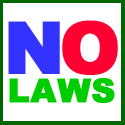A Guide to the Drug-Legalization Movement
Ethan Nadelmann, Ph.D.
Organization
Address
The Lindesmith Center-Drug Policy Foundation
New
York
925 9th Ave
New York, NY 10019
(212) 548-0695ph
(212) 548-4677fx
Washington,
DC
4455 Conn Ave, NW
#B-500
Wash, DC 20008
(202) 537-5005ph
(202) 537-3007
San
Francisco
2233 Lombard St
San Fran, CA 94123
(415) 921-4987ph
(415) 921-1912fx
Legal
Affairs
717 Washington Street
Oakland CA 94607
(510) 208-7711ph
(510) 208-7722fx
New
Mexico
1322 Paseo de Peralta
Santa Fe, NM 87501
(505) 983-3277ph
(505) 983-3278fx
Sacramento
1225 8th Street, Suite 570
Sacramento,CA 95814
(916) 444-3751ph
(916) 444-3802fx
Research
and Policy Reform Center
(501(c)(4) affiliate of the Lindesmith Center-Drug Policy Foundation)
1201 Pennsylvania Avenue NW
Suite 300
Washington, DC 20004
NORML
Advisory Board, 1984
DPF Advisory Board, 1989
DPF Advisory Board, 1993
DPF Board of Directors, 1994
DPF Board of Directors, 1995
DPF Board of Directors, 1996
DPF Board of Directors, 1997
Bio
Ethan Nadelmann
founded The Lindesmith Center in 1994 with the philanthropic support of
George Soros. He now serves as executive director of The Lindesmith Center-Drug
Policy Foundation. The two organizations merged July 2000.
On
Legalization
On Harm Reduction
On Heroin Maintenance
"'So what
you're saying is, you want to legalize drugs, right?' That's the first
question I'm typically asked when I start talking about drug policy reform.
My short answer is, ‘No, that's not what I'm saying. Legalize marijuana?
Yes, I think we need to head in that direction. But no, I'm not suggesting
we make heroin and cocaine available the way we do alcohol and cigarettes.'"
Source: "Seeking Peace in the War on Drugs," Ethan Nadelmann, Utne Reader
Sep/Oct 2001, Issue: 107.
"The best answer
is to move slowly but firmly to dismantle the edifice of enforcement.
Start with the possession and sale of cannabis and amphetamines, and experiment
with different strategies. . .Move on to hard drugs, sold through licensed
outlets. These might be pharmacies or, suggests Ethan Nadelmann, director
of the Lindesmith Centre, mail-order distributors. That, after all, is
how a growing number of people in America acquire prescription drugs,
including some that are not licensed for use in their country. Individual
states could decide whether to continue to prohibit public sale. Removing
the ban on possession would make it easier to regulate drug quality, to
treat the health effects of overuse, and to punish drug-users only if
they commit crimes against people or property."
Source: "Set it Free: The Case For Legalisation Is Difficult, But The
Case Against Is Worse," The Economist, July 26, 2001.
"On the legal
front, Mr. Nadelmann advocates legalizing marijuana. He is evasive about
cocaine and heroin. ‘We don't have a position on that,' he said. ‘There
are huge fears associated with this possibility,' he added, acknowledging
that selling crack in corner drugstores might not go down well with most
Americans".
Source: "Rabbi's Son Seeks Truce in America's War on Drugs," Forward,
June 1, 2001.
The war on
drugs is really a war on people - on anyone who uses or grows or makes
or sells a forbidden drug. It essentially consists of two elements: the
predominant role of criminalization of all things having to do with marijuana,
cocaine, heroin, Ecstasy and other prohibited drugs and the presumption
that abstinence - coerced if necessary - is the only permissible relationship
with these drugs. It's that combination that ultimately makes this war
unwinnable.
Source: "An Unwinnable War on Drugs," Ethan A. Nadelmann, New York Times,
April 26, 2001.
"Medical marijuana
is the compassion cover for legalization. Ethan Nadelmann, a spokesman
for George Soros (a billionaire backer of the California initiative),
has stated: ‘Ultimately our drug policy should be based upon one very
simple notion, that people should not be discriminated against based upon
the substance they consume.'"
Source: "If Marijuana is Medicine, Dr. Kevorkian Wrote the Prescription,"
Don Feder, Boston Herald, April 2, 2001.
"‘Let's stop pretending we want a drug-free society!' Mr. Nadelmann declared, waving his arms for emphasis. ‘Drugs are here to stay. Instead of waging a lost war and brandishing prohibition as the solution, we need to focus on a harm-reduction approach and helping drug users and addicts getting their lives together.'
"By harm reduction, he means treatment. Two-thirds of the government's $19.2 billion annual drug budget is spent for interdiction and enforcement. Estimates are that nearly one-half of addicts needing treatment can't get it for lack of funds.
"He also wants
job training, literacy courses and housing assistance for addicts, whether
or not they discontinue drug use."
Source: "Rabbi's Son Seeks Truce in America's War on Drugs," Forward,
June 1, 2001.
"Indeed, as
one quoted exponent of the movement, Ethan Nadelmann, acknowledges: ‘There
never has been a drug-free society. We must learn how to live with drugs
so they cause the least possible harm and the best possible good.'"
Source: "Drug War's Critics Don't Excuse Abuse," Northwest Florida News,
June 16, 2001.
About • Site Map • Privacy
© Copyright 2001 National Families in Action. All rights reserved.
Questions? Write to nfia@nationalfamilies.org.
